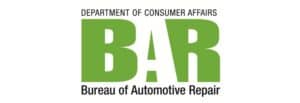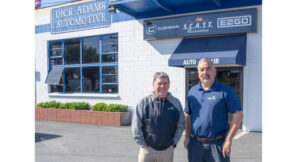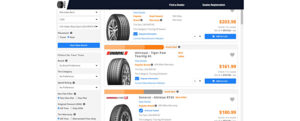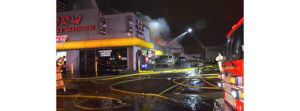More than 2,200 new legislative bills were introduced this year alone — here’s what the California Autobody Association is keeping an eye on
Sacramento, Calif.—More than 2,200 new legislative bills were introduced this year alone, which does not include the carry-over legislation from last year’s (two-year) bills. Many bills introduced so far are “spot bill,” meaning they are place holders to be amended later, as recently reported by the California Autobody Association (CAA).
The bills will start making their way through the legislative process, and as the session moves forward, CAA will continue to monitor the bills, including amendments and will add to the list. Here’s CAA’s breakdown.
Legislative Bills
Catalytic Converter Theft. Ten bills have been introduced this year to address the catalytic converter theft issue:
• AB 1622 — Would require smog shops to provide signs informing customers about strategies for deterring converter theft, including etching of identifying information on the converter. Status: Introduced.
• AB 1659 — Revises the definition of auto dismantler to include a person who keeps or maintains two or more used converters not attached to a motor vehicle.
• AB 1740 — Requires core recyclers who accept converters to maintain specified written records. Status: Introduced.
• AB 1984 — A peace officer need not have actual knowledge that converter is stolen to establish probable cause for arrest. Status: Introduced.
• AB 2398 — Possession of a detached converter would be a crime, either a misdemeanor or felony. Status: Introduced.
• AB 2407 — “Spot bill,” meaning it’s a place holder for legislation relating to theft of converters. Status: Introduced.
• AB 2682 — Prohibits a dealer from selling a vehicle unless a converter has been engraved, etched or permanently marked with VIN. Status: Introduced.
• SB 919 — Prohibits a dealer from selling a vehicle unless a converter has been engraved, etched or permanently marked with VIN. Status: Introduced.
• SB 986 — Requires core recyclers who accept converters to maintain specified written records and prohibits a dealer from selling a vehicle unless a converter has been engraved, etched or permanently marked with VIN. Status: Introduced.
• SB 1087 — Requires core recyclers who accept converters to maintain specified written records and prohibits any person from purchasing a used converter other than a dismantler or auto repair dealer. Status: Introduced.
Vehicle Insurance. Support. SB 1107 — This bill, among other things, would increase the amount of liability insurance coverage an owner of vehicle is required to maintain from the current $15,000 for single injury or death, $30,000 for injury or death of more than one person and $5,000 for property ($15k, $30k, $5k) to ($30k, $60k, $25k). Status: Introduced.
Employment Bills. Concerns. AB 1993 — Requires employers to require employees to show proof of that an employee has vaccination against COVID-19. Status: Introduced. AB 1949 — Provides for five days of employee bereavement leave. Status: Introduced.
Hazardous Waste. Watch. AB 2059 — Requires suppliers that provide certain amounts of hazardous materials to maintain electronic records for at least five years. Status: Introduced. AB 2899 — Relates to misbranded and banned hazardous substance hearing procedures. Status: Introduced.
Career Technical Education. Watch. AB 2058 — This bill requires applicants for career technical funding to report additional data on the number of pupils taking career technical education course. Status: Introduced.
State Budget
The Governor’s budget includes funding for the Department of Toxic Substances Control (DTSC) to implement last year’s SB 158, which created a new hazardous waste oversight board and the subsequent increase in hazardous waste fees.
BAR Regulations
AB 471 Implementation. BAR is moving to implement last year’s AB 471 through regulations, which include an informal appeal process for citations, creating an independent three-member panel to hear citation appeals (see below), remedial training and provider certification, storage fee clarification and vehicle safety inspection program (see below). BAR is prioritizing the regulation packages and planning for more frequent workshops in 2022.
Citation & Fines. BAR is proposing citation and fine regulations which would provide the BAR the ability to issue citations and fines to auto repair facilities, up to $5,000 per citation. The BAR has held three workshops on these proposed regulations. Due to the passage of AB 471, the regulations will include the ability for shops to informally appeal citations before an independent panel and the option to take remedial training to prevent the citation from being posted on the BAR website. Concerns have been raised that any citations and fines issued must be based on objective and fair and reasonable guidelines. The BAR is working to address concerns raised by the industry.
BAR Remedial Training. As part of the implementation of AB 471, BAR is holding a workshop on March 2. re: remedial training for ARD’s and provider certification. CAA plans on attending and reporting.
Vehicle Safety Inspection. BAR also working on a vehicle safety inspection program which will combine the current brake and lamp inspection and expand the vehicle inspection requirements. BAR is reaching out to stakeholders for feedback on what additional inspections should be inspected as part of the inspection program. See link for questionnaire.










Comments are closed.